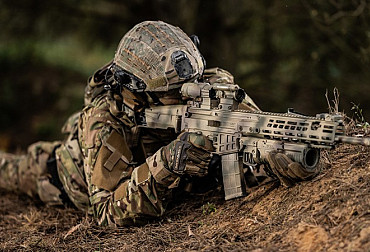If we gain the support of employers, we will build an even higher-quality and more effective active reserve, is heard from the 7th Mechanised Brigade
This year marks twenty years since the foundations of the Active Reserve (AR) were laid. It has evolved and gained respect, but it has also proved that being an equal partner of the professional army is a challenging journey. For an interview on the history and present of the Active Reserve of the Armed Forces of the Czech Republic we asked Captain Martin Vaňourek and Colonel Miroslav Vybíhal from the 7th Mechanised Brigade.
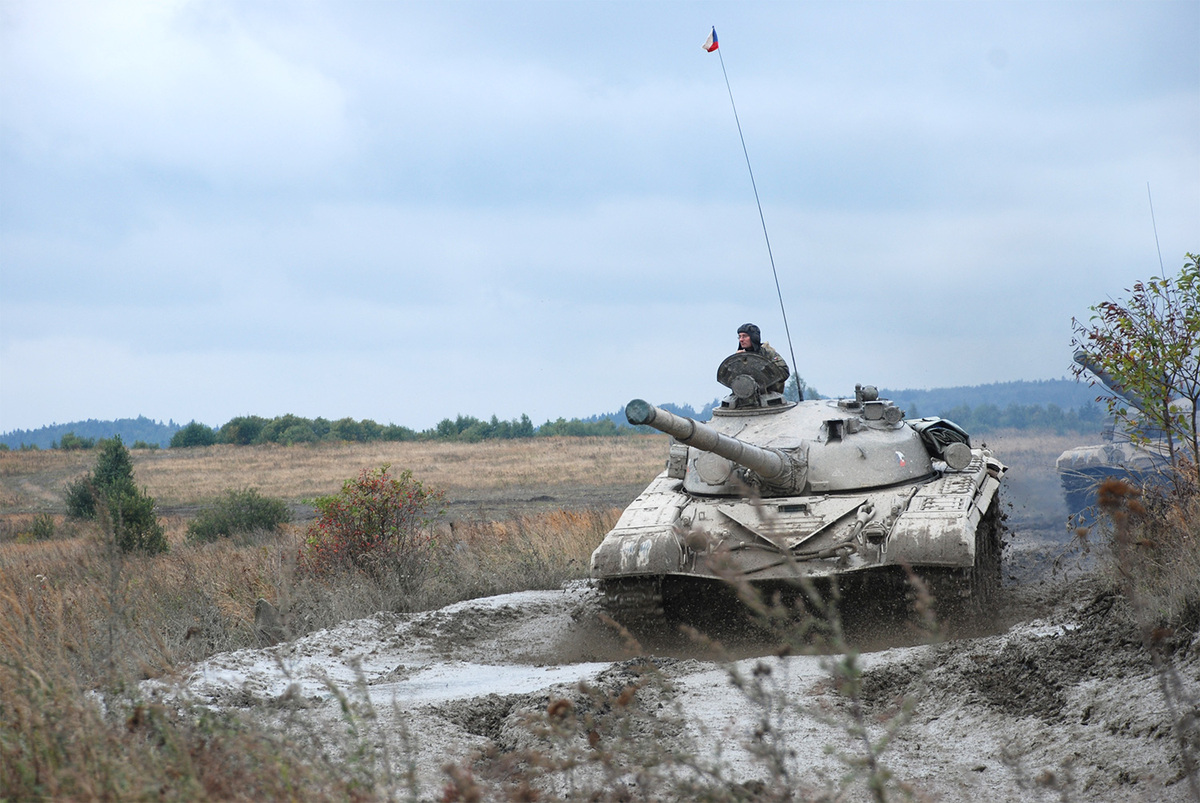
We asked Captain Vaňourek whether he believes, that the issue of reserves has always been a priority in the history of our army?
For every army, the reserves are strategic, which was true for both the pre-war Czechoslovak army and the later post-war Czechoslovak People's Army. At that time, however, recruitment to the reserves was not an issue, as the reserves were made up of soldiers on full-time service (which was established in 1933 for 24 months), who left for the reserves after completing their service. As part of the mobilization preparations before the war, reservists were sorted into Reserve I, which included men up to the age of 40, and Reserve II, which included men up to the age of 60.
How many times in the history of our army have the reserves been called up to defend the Republic?
Our army has mobilized a total of three times. The first time was shortly after the end of World War I, in 1921, but this was only a partial mobilization, when only a few years were called up. The next mobilization was in May 1938, when it was again a partial mobilization. The largest mobilization ever was then announced in September 1938, when the entire I Reserve and a tiny part of the II Reserve were called up. As far as the post-war period is concerned, our army never mobilized the reserves again. Only during the so-called Caribbean Crisis was one year of full-time soldiers "held" on active duty for several weeks longer before being released to the Reserves.
How does history evaluate the reservists called up in 1938?
The best trained year in the Reserves was considered to be 1935, while the others were deficient in their knowledge of the new weapons because our Army was undergoing extensive rearmament in the second half of the 1930s. Furthermore, there was ignorance of the service regulations among the reserve officers, but in all of them the enthusiasm to defend the Republic prevailed, which was later broken by the acceptance of the conditions resulting from the Munich Conference.
So history does not know the concept of active reserve?
It doesn't, because the need to create new reserves to gradually replace the years of reserves composed of full-time soldiers came only with the creation of the professional army. Moreover, the impulse to build the reserves came from the army, because the political representation did not admit that any large-scale conflict could arise on the territory of Europe.
The active reserve has been building for over twenty years. It appears that a certain portion of society is already exhausted in terms of personnel when it comes to serving in AZ. What groups will the Army have to focus on in order to be able to meet the planned strength of 10,000 personnel?
Those who wanted to join the active reserve are already there and form its solid base. These are mainly ex-servicemen and soldiers who have undergone basic military service. Unfortunately, not all the decisions made about soldiers in the active reserve over the past 20 years have been correct, and some steps have been rather detrimental to building up the active reserve.
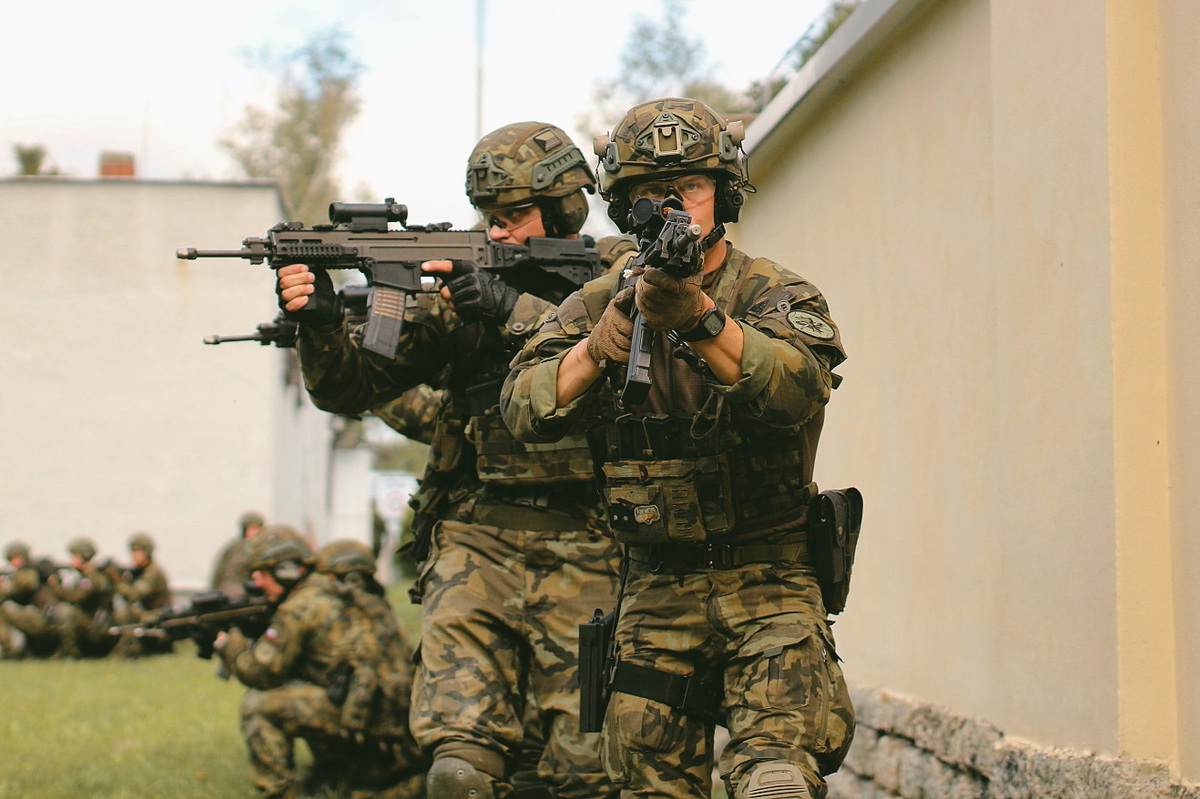
What do you mean?
As I said, the beginning of the active reserve was built on former enlisted and active duty soldiers who had training and quite a bit of experience behind them. In 2016, a new law came into force, and with it the educational requirements for soldiers in specified positions. A number of soldiers in the active reserve did not have this required education, and if they did not agree to a reduction in rank, they had to leave. This meant that mainly ex-servicemen with valuable experience in training and military legislation began to leave the active reserve. The army thus incomprehensibly deprived itself of trained professionals in whom society had invested considerable resources over the years. In this respect, it would have been more appropriate at the time to let this group of soldiers serve out their time and give them time and space to pass on the experience they had gained during their service as professional soldiers. All this could then be passed on to the new reservists recruited from the graduates of the Basic Training Course who had not yet been exposed to military service. It would certainly be more effective than to burden the Training Command - Military Academy in Vyškov unnecessarily during this period.
Let's go back to the original question. What will the Czech Armed Forces have to focus on in order to be able to meet the planned number of 10,000 personnel?
One thing is the interest of the citizens of the Czech Republic in joining the active reserve, the other is the conditions and their possibilities. In order for the planned 10,000 members of the active reserve to be fulfilled at all, the Ministry of Defence should find a way to reach out to employers and gain their support. Not everything can be mandated by law in the sense that the employer must release reservists for regular exercises. It must be realized that employers are primarily concerned with the prosperity and success of their business, which is burdened with obligations such as paying social and health insurance for their employees, property taxes, value-added tax, income tax and others. To do this, they need employees who contribute to the generation of income, so it is logical that releasing reservist employees for military exercises is not very acceptable to them.
But the military provides employers with financial compensation for reservists called up.
Yes, that's true, but the numbers say otherwise. If, for example, an employer frees up a metalworker with a net income of 32,000 crowns for a monthly training session on CNC machines, which is, by the way, a basic function, then the cost of his salary, including health and social insurance contributions and other costs, is around 60,000 crowns. The army, however, provides compensation of just under CZK 31,000, which is not enough for the employer to cover another employee who has to replace the called-up reservist during his absence. Therefore, in my opinion, it is necessary to consider how employers could be recruited or motivated to release reservists for regular exercises.
So do you believe that this is the key to continued successful recruitment to the active reserve?
Without the support of employers, companies cannot be expected to release their reservists for training on a larger scale, and this is an insoluble problem for many active reserve candidates if they do not want to lose their jobs. A way should be sought to encourage employers themselves to ensure that their active reserve employees fulfill their commitments and are released for these exercises. For example, if companies used to employ people with disabilities, they had tax breaks. Today, however, the reverse is true; if a company has more than 25 employees and does not employ a disabled person, it must pay a set fee.
So the military should open up the discussion with employers?
Not so much the army as the Ministry of Defence by way of other ministries. It should also open a discussion with the Czech Chamber of Commerce, the Confederation of Employers and Business Associations and other bodies in order to find an even better way to release employees to the active reserve. I do not think that there is any lack of understanding among employers for this matter, but it is necessary to win them over to the idea and also to motivate them. The way it is set up now is not, in my opinion, the way to fill the AR to the planned number of 10,000 soldiers. At the same time, many citizens would join the AR, but the employer's attitude discourages them because having a stable job is existential for them.
How do you think new potential members of the AR should be effectively motivated to join the active reserves?
Personally, I see a lack of pride and patriotism in people, which is the result of relatively little knowledge of their own history. We are often patriotic only during international football and hockey matches, when the republic is flooded with national flags, and we must not be knocked out in the quarter-finals. It is necessary to be proud of one's homeland and not to ask what the homeland will do for me, but what I will do for it. Putting on the uniform must be a matter of pride and honor, knowing that behind it lies blood, sweat, mud and bad weather. Further, one must realize that AR is a team thing where one must rely on the other. Active reserves are about friendship and camaraderie. But it's not just about recruiting new soldiers, it's also about retaining existing ones.
What do you think is the biggest problem for current AR members? Is it communication between the military and employer, finances, or something else?
Lasting as an active reserve soldier. One thing is the financial incentive in the form of the recently introduced stabilization allowance, the other is the question of how the country will treat a soldier in the AR when he runs out of strength and has to quit. The retirement threshold is a big issue in society, and I am convinced that if a soldier in the active reserve were motivated by the fact that, for example, after fifteen years of service, when he had served two-thirds of the statutory days, he would retire two years earlier, that would be a motivating element. I do not think that a few hundred soldiers, veterans of the active reserve, would in any way endanger the state budget. On the contrary, it would be an incentive for a number of them and a solid and permanent cadre of active reserve soldiers for the army.
New legislation was created for the activities of AR, which anchored its functioning. It happens, however, that over time it is found that legislation not directly related to the AR complicates the activities of the active reserve. For example, tax laws. Is there still any identification of these problems and efforts to eliminate them?
Problems are there to be solved. As I mentioned, I would probably address the employer-military relationship as the first and fundamental problem. We need to recognize that the active reserve management groups at each of the services are preparing exercises for their units, and they are staffed at the numbers that they are staffed at. As a result of the unfavourable attitude of the employer, perhaps only half of them will then join in practice, which is a waste of time, money and effort for all concerned. It is also reflected in training, which loses intensity and, above all, effectiveness. Problems are encountered, analyzed and solutions sought, but these are more lengthy. It would certainly be beneficial if the recruitment of active reserve soldiers were not too bound by demanding laws and regulations, but was more flexible, more efficient and more in line with the needs of the army - of course, in cooperation with the employer.
Are professional soldiers coming to the end of their professional contract interested in continuing their service in the active reserves?
I believe that this interest is minimal, because if someone leaves the army, it is mainly because they are exhausted and this work does not fulfilll them, so they are looking for a new job in the civilian world. On the other hand, it has to be acknowledged that it is ex-servicemen who are the optimal commanders at company or staff level. But there is still room for finding an optimal option to get former professionals into the active reserve.
With the modernization of the Czech Armed Forces, the modernization of the AR is and will be gradually taking place. How will AR cope with this modernization, given the limited training time?
Modernization in the active reserve is one of the things that is driving the reservists. Under the guidance of professional soldiers, it will not be a complex process. If it's about time, then again, we go back to what I said earlier. Getting time and space from employers to make the active reserve make the sense that it is being built for. To be well trained, to be proficient in the weapons of a professional military, and to reach a level of proficiency that can be used meaningfully in any circumstance.
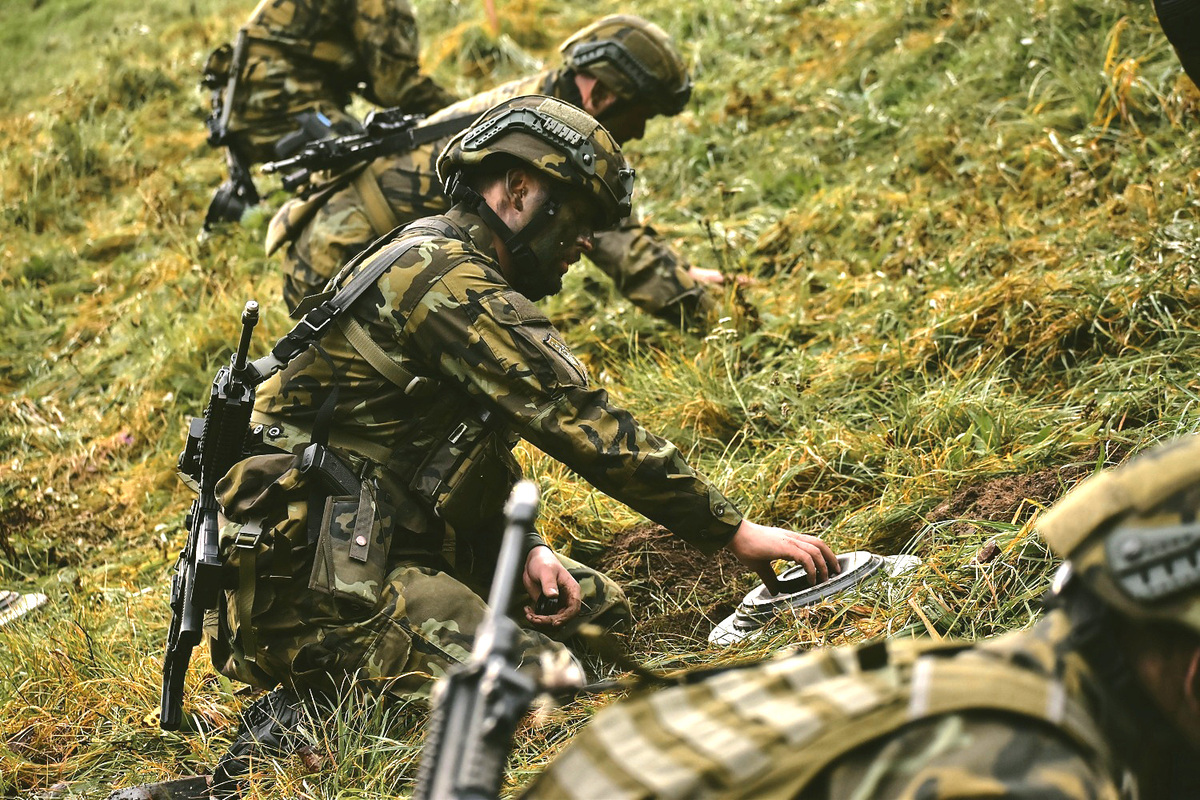
Is there any specific idea how many AR members should be sent to foreign operations within our contingents? For example, how high should the percentage be?
There is certainly an idea of a wider involvement of active reserve soldiers in foreign operations, but this is conditioned by the involvement of our army as such and the capabilities of the reservists themselves. We have already talked about this topic when I served in the 3rd Task Force in Slovakia, where the active reserve gained valuable experience through its largest deployment.
Is it possible to say that at present the active reserves are unofficially divided into two groups, namely the AR of the Czech Armed Forces units and the AR of the Regional Military Headquarters (RMH)? Do their activities and the challenges that these groups face differ in any way?
A distinction needs to be made between the active reserve's predetermination in the RMH and the Czech Armed Forces units, and the resulting training requirements and capabilities. Given that there is a choice of whether a reservist wants to serve in the Czech Army units or in infantry companies under the RMH, and there are vacancies everywhere, it is up to each reservist's ideas and capabilities to decide. Then if the reservist's assignment does not meet his/her ideas, abilities and strengths, he/she can change units.
The acting commander of the 7th Mechanised Brigade, Colonel Miroslav Vybíhal managed to prepare and send the largest number of reservists to date to the Multinational Task Force Slovakia, which he commanded. We asked the colonel how much of a contribution he sees in the active reserve?
If I didn't see the benefit in it, I wouldn't have offered positions to reservists at the contingent headquarters level. History hasn't recorded that so far and I don't regret my decision because those soldiers have not failed. On the other hand, it is also a challenge for them to work on themselves and improve, to be part of a team of professional soldiers, even if only for the duration of their regular training. There is always room for improvement and refinement for active reserve soldiers at all levels.
What is the manning of active reserve soldiers in the 7th Mechanised Brigade?
In terms of manning, it's not bad, but we still have plenty of vacancies. We have our three mechanised companies and one tank company fairly well filled. We have also opened positions at the battalion headquarters and brigade headquarters, where we are particularly interested in ex-servicemen.
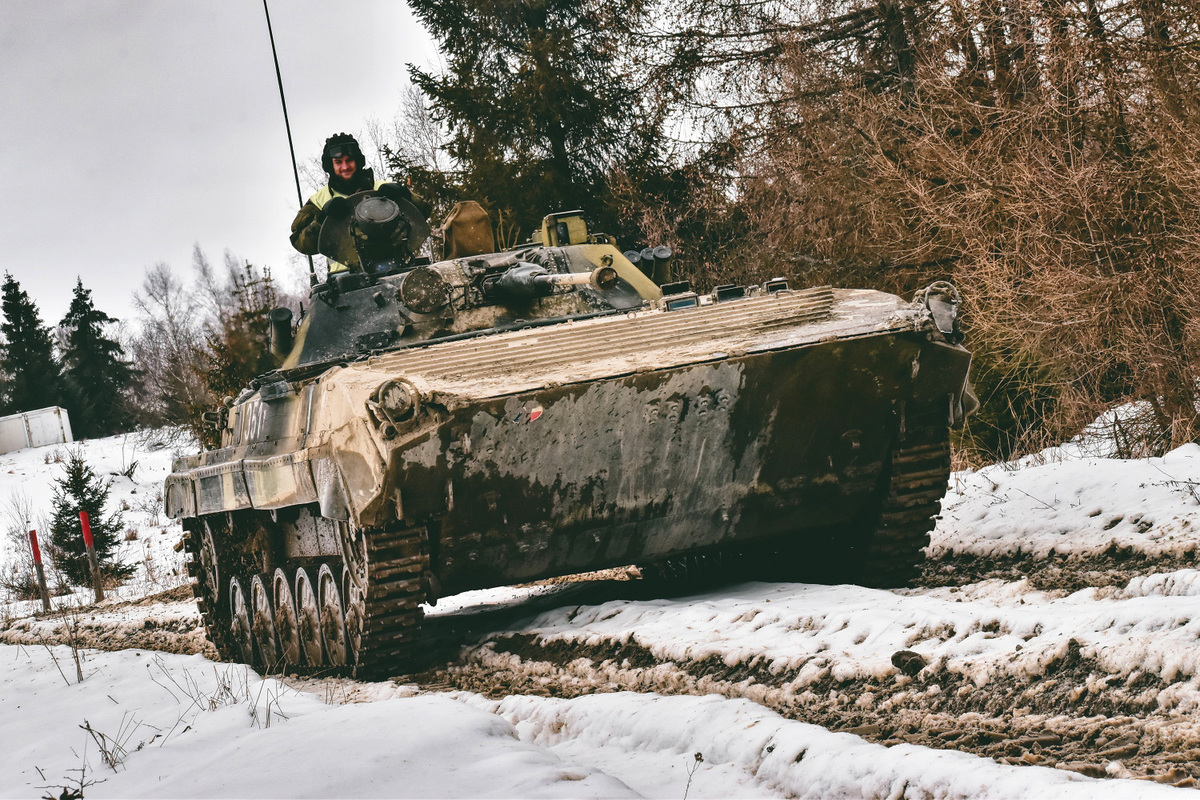
Do you share the view that employer support would be beneficial to building an active reserve?
In my opinion, without close cooperation and support from employers we can plan anything within the active reserve, but if employers have no incentive to release these people to us, then it is a waste of time and money. If we want a well-trained reserve, we need time to prepare reservists for their role and deploy them when needed. So the employers of reservists need to be our partners.
What do you mean?
Many employers have no idea what the preparation and training of reservists looks like. I think it would be useful to meet with them, show them the demands and scope of field training, and the resulting time allotted to achieve it. This would be a vital argument for them to also understand the meaning of the words "we will all be soldiers if necessary". We are prepared to make a presentation to employers of our reservists on what all this entails, both legislatively and practically. In short, to show them that our work is meaningful and to give them the argument that their support is also meaningful for securing the defense of the homeland. At the same time, I would add that employers must also be motivated to do our work.
















